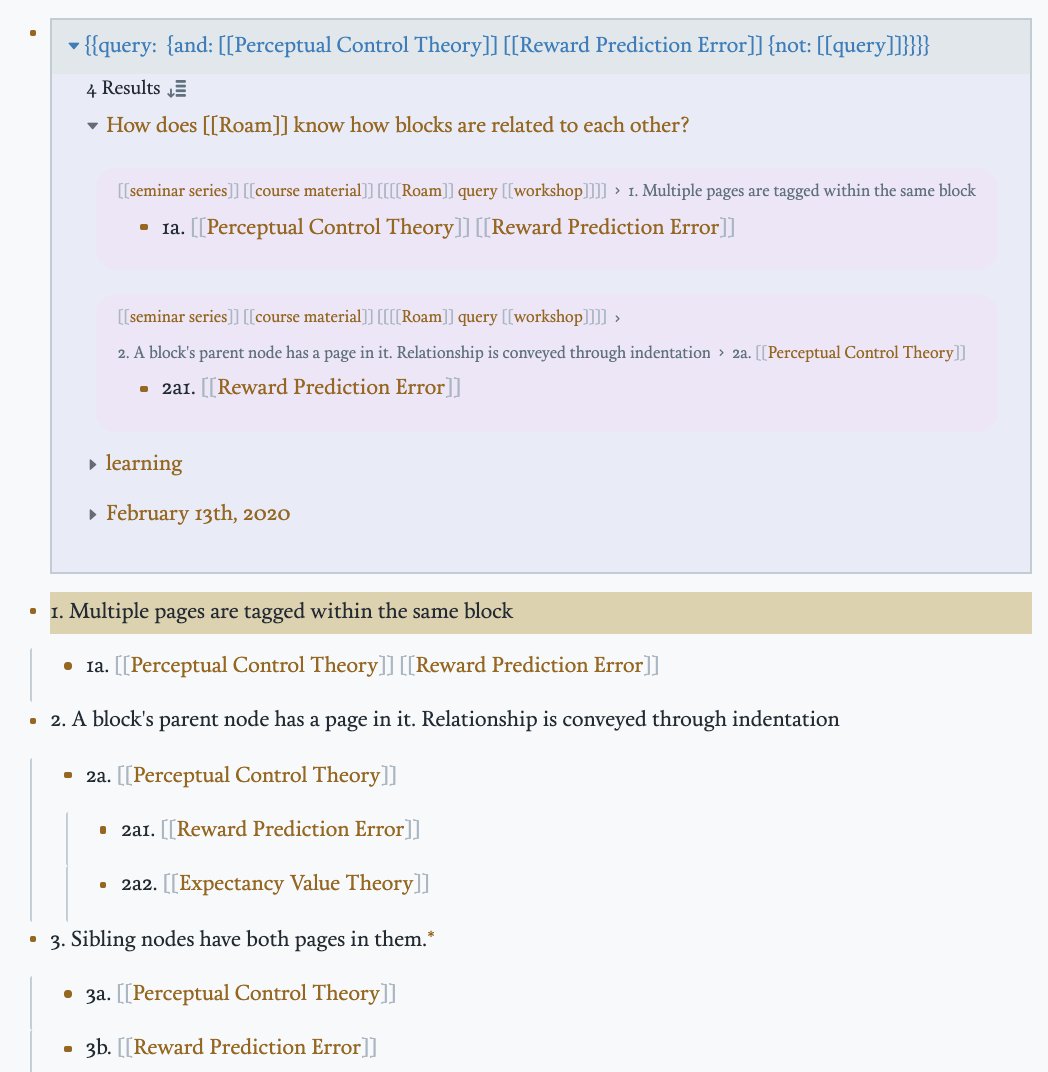
Fantastic article from @hpadkisson about how to use @RoamResearch for qualitative research! An excellent capstone from @nateliason's Effortless Output course. My process has slight differences, but is mostly similar! 🧵👇assumes you read the article ️uxdesign.cc/roam-research-…
One alt approach to her way of capturing data during user interviews uses block references for the questions, and capture each interview on an individual level in daily notes. You can filter the block references for each question in the same way you can filter page references: 

Imagine in the above screenshot I made it so instead of saying P01 it said template. Then I could block reference that, apply children as text, and I have the whole user interview script below. Easy templating with block references, see QT 

https://twitter.com/RobertHaisfield/status/1305901206527590400


Then I just change the parent node to call out which participant I'm interviewing and everything is sortable through linked references to pages and blocks in the same way as she described in the article! I can filter responses to questions by who said them and how they are coded 

What I love about taking notes on user interviews in Roam is that all of my notes related to what users say are on the same workbench as my notes about behavioral science papers. It's easy to code a user's responses to questions so they interact with my broader knowledge base.
• • •
Missing some Tweet in this thread? You can try to
force a refresh




